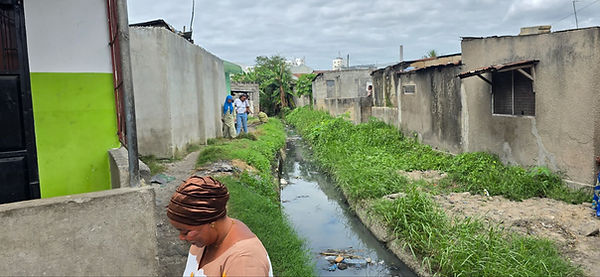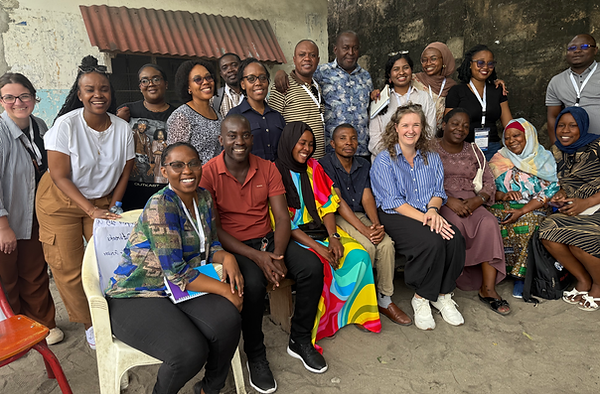Working on Alternatives in Tanzania by Carol Anee Spreen
.jpg)
Climate change can make weather events more extreme—from droughts and wildfires to heat waves and major storms. In poor neighborhoods of Dar es Salaam, the largest city in Tanzania, heavy rainfalls regularly overwhelm blocked drainage systems and flood homes, filling living rooms with garbage and human waste. These floods can lead to contaminated drinking water and illnesses like cholera.
That made the city a fitting setting this May and June for an NYU course focusing on strategies for how to limit those dangerous impacts. Developed in collaboration with UNICEF and hosted by the Muhimbili University of Health and Allied Science (MUHAS), the goal of the “A Systems Approach to Climate Change: Efficient Strategies for Local Mitigation” was to work with local communities to design realistic, cost-effective programs that respond to complex health challenges driven by climate change and poverty. Notably, its typical enrollment goes beyond who you’d typically find in a college classroom: several staff from the Tanzanian government and NGO professionals enrolled in the class and worked on teams alongside NYU students to build skills to interact directly with community members so that their priorities and perspectives become the foundation of strategies to improve health and wellness.
While in the communities, each team of students developed a “systems map,” a tool to visualize the complexity of a given problem. Starting with a blank piece of paper, community members listed out the factors that may be driving a particular challenge and added context that can only come from lived experience.

The course was co-taught by instructors Professor Chris Dickey from Global Public Health, Professor Carol Anne Spreen from International Education, and Jumo Ayandele from the School of Professional Services. The interdisciplinary class included 29 NYU graduate students from the Global Public Health, the International Education program, tProfessional Studies, and Public Policy; junior faculty and post-doc members from MUHAS; and about 30 professionals from UNICEF, local and global NGOs, and government partners working in Tanzania’s capital of Dodoma and in Zanzibar. The hybrid course started with several weeks of online learning, followed by a week-long intensive in Tanzania.
